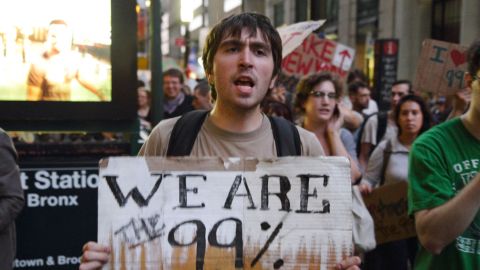Asher Edelman: Why it is Happening Here

What’s the Big Idea?
As the world watched London burn under the strain of economic uncertainty this past summer, the legendary entrepreneur and art world financier Asher Edelman warned that the conflagration could spread to the U.S. “I think that you should watch very carefully for the possibilities of social unrest in this country unless Washington wakes up,” he told Big Think.
It turns out he was right.
Watch the video here:
What’s the Significance?
What does Edelman suggest should be done to turn things around?
“If I were Chairman of the Fed right now,” he says, “I would try to instruct both the President, his advisors, and Congress that monetary easing alone or monetary policy alone, can never revive the economy.”
Edelman, who has worked in investment banking, money management, and derivatives trading on Wall Street since 1961, says the the recent actions by the deficit hawks in Congress amounted to “an absolute absurdity” given that we are still in the middle of a recession. He tells Big Think: “Without fiscal intervention on the part of government we will be a very long time before the consumer is able to revive his needs and a very long time before our budget will in any way become balanced.”
Reaganomics, according to Edelman, has been proven nonsense “time and time again…it doesn’t trickle down anywhere. The man with a million-dollar income who makes another $100,000 is more likely than not not to spend it.”
How bad is our current predicament in the U.S.? Edelman tells Big Think:
If inflation is 2 percent but 60 percent of the inflation figure has to do with labor, who of course are shrinking in terms of salaries and income, then inflation is actually 6 percent. If inflation is actually 6 percent, and I think it’s more than that, and, at the same time, growth is 2 percent, we are in a recession.
Instead of remedying that situation, Congress’s spending cuts will paralyze future growth and “will drive the economy into the kind of recession or depression that we had in the 1930s.”





